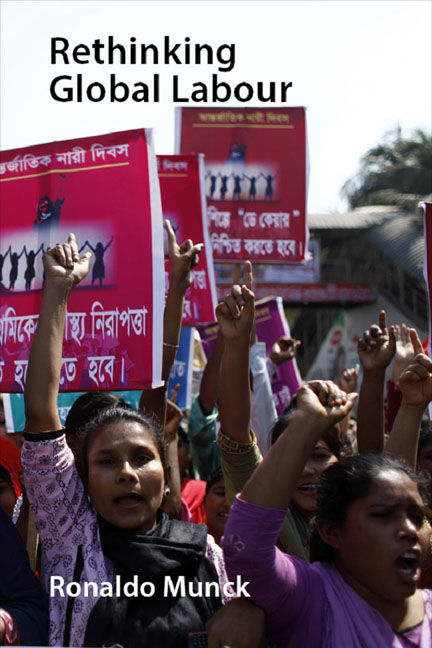1 - Labour and Capitalism
Published online by Cambridge University Press: 09 August 2023
Summary
The study of the development of capitalism and the study of labour relations usually proceed along separate tracks, driven by different academic disciplines. In this book I follow an integrated treatment of capitalism and wage labour in the belief that one depends on the other. We begin with the way the working classes were, in Karl Marx’s words, “born in blood”, as capitalism and colonialism took over from the older social orders. Workers had to be violently separated from pre-existing means of survival to be “free” for capitalist employment. This process led to what Karl Polanyi called the “great transformation”, which I examine to explain how the self-regulated market began to hold sway over society in general and over workers in particular. I conclude this opening chapter with a hypothesis that we are now moving “back to the future”, as today’s labour relations have much in common with the first era of industrialization in the 1890s, with a global market and a global working class that truly has “nothing to lose but its chains”. The themes raised in this chapter will be explored in further detail in subsequent chapters, but a wide overview is necessary to pose the big questions. A labour approach to understanding the development of capitalism needs to foreground the capital/wage labour relation and the constant role of labour struggles in shaping that development.
Born in blood
“If money, according to Augier ‘comes into the world with a congenital blood stain on one cheek’, capital comes dripping from head to foot, from every pore, with blood and dirt” (Marx 1976 [1867]: 915). Thus spoke Marx towards the end of Capital, volume 1, when dealing with the “genesis of the Industrial Capitalist”. The shift from merchant wealth accumulation to capitalism as a mode of production entailed a new mode of mobilizing social labour and nature and unprecedented levels of brutality to achieve it.
- Type
- Chapter
- Information
- Rethinking Global LabourAfter Neoliberalism, pp. 11 - 30Publisher: Agenda PublishingPrint publication year: 2018



